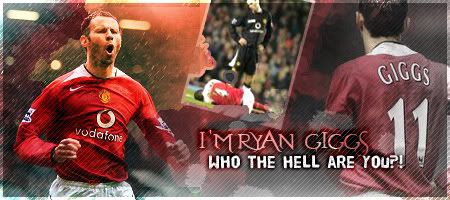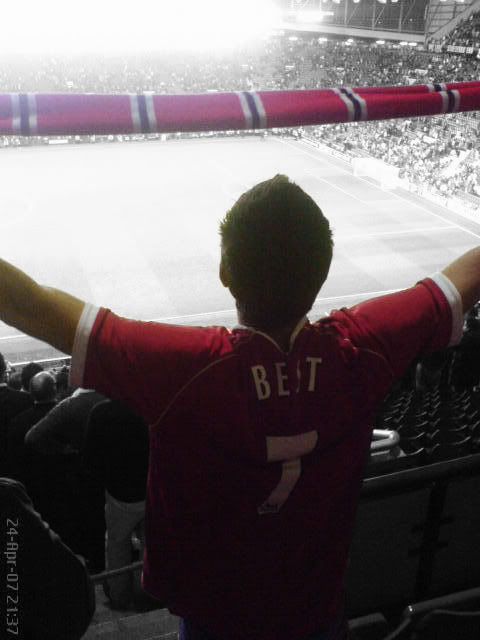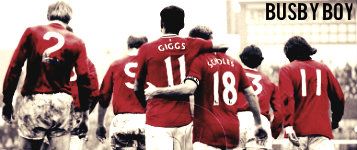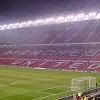Post by sahahaha on Jul 6, 2006 17:02:21 GMT
FINALLY an article worhy of a player who imo is up there as one of the best footballers i've ever watched play if not the best.
The Manchester United playmaker never had much to say but his influence on the pitch spoke volumes, believes John Carlin, who castigates English football for its failure to appreciate a star
Sunday July 2, 2006
The Observer
Had Paul Scholes been born with David Beckham's looks he would have been a football legend. The enemy of glamour, a timid homebody whose soul belongs to his native Salford, Scholes is the most naturally gifted player England produced between Paul Gascoigne and Wayne Rooney, the closest thing to a homegrown Zinedine Zidane.
These seem to me statements of the obvious, yet neither the eye problem that has threatened a cruelly sad passing to his playing career, nor a mightily successful decade with Manchester United, nor a fine England record, has stirred anything like the fascination in the media that lesser players have done. Scholes has simply never been good copy. Not a smidgeon of off-field scandal; never a word out of place. Never a word, period.
One of the least memorable moments of the last World Cup was a press conference Scholes gave on the eve of England's quarter-final against Brazil. The groans from my fellow hacks on learning that the FA in their wisdom had selected the moon-faced midfielder for this occasion could have been heard all the way back to Old Trafford. And Scholesy did not let them down. As I reported here at the time, this was the closest thing approaching a pearl that we got out of him, as well as quite possibly the longest sentence he has ever uttered in public: 'We have just got to go out there and play as well as we can, hope we get a little bit of luck and get a result.'
His analysis was spot-on. England did not play as well as they could, they didn't get a little bit of luck and they didn't get a result. Scholes, like everybody else, was poor that day. Yet he had it in him to have been as influential on the game as Ronaldinho had been.
Why wasn't he? To a degree, it's because he is the anti-Ronaldinho. A bit more joie de vivre, a bit less inhibition, a bit more self-expression and we might worship him today as a great of the modern game. But that's not the real story. The truth about Paul Scholes is that he realised his potential as much as anybody can reasonably be expected to do, that he is indeed a damn fine player - the most complete footballer in the most thrilling team to grace an English pitch these past 10 years, Sir Alex Ferguson's Manchester United All achieved despite his asthma.
For England, before his international retirement after Euro 2004, he rarely shone the way he did for his club (his 1999 Wembley hat-trick against Poland in a critical European Championship qualifier was a stunning exception). He shone least under the timorous shadow of Sven-Goran Eriksson, who played him out of position, too far back to have the chance to deploy his talents to optimum effect. Where Scholes belongs is not in the middle, in what for him becomes a no-man's-land between attack and defence. His natural place is three-quarters of the way up the pitch, behind the strikers, hovering with guileful menace on the fringes of the penalty area.
Scholes possesses a superior footballing intelligence. Both his feet and his mind work faster than other players'. He has that split-second advantage in skill that separates the merely good from the great and he has an almost unfailing instinct for how best to use the ball - to hold it, to spread it wide, to pass it back - the instant he receives it. That was why he was the player around whom the Treble-winning United attack revolved. The rampaging urgency with which they swept forward, down the left with Ryan Giggs or down the right with David Beckham, the penetration through the middle to where Dwight Yorke or Andy Cole lay in wait: it was down to Scholes, the cog at the centre of all that. He was, with that ginger hair of his, the spark of the United machine. Without him the engine would neither have fired nor purred the way it did. Without the self-effacing Scholesy orchestrating the show, the rest of the team would never have looked as good.
Why do I say he was the most complete footballer in that United team, or - for that matter - any English team of the late Nineties and early 2000s? Because self-evidently he was. Was there any player with a better first touch, with a broader range of passing, with so much talent in both feet? There was not. Add to that his natural goalscoring talent. He is a phenomenal header of the ball for a man so small. He has a bullet of a shot. And he is canny, too - his trademark goal being the type that Martin Peters patented in the 1966 World Cup, ghosting into the box. And he is, in his quietly gritty way, formidably competitive. Even of temper as he is, no one at Old Trafford doubted that he was the most loyal of team men, that he ever gave anything less than his best.
It is hard to say how he would have adapted as a man, but as a player Scholes would have fitted into any top team in Europe better than practically any other Englishman. He would not have been out of place at Juventus or Milan, Real Madrid or Barcelona. He would have slotted comfortably into the attacks of any of those teams and brought each added value. As he battles against his eye problem, one fervently hopes successfully, it is a pity how blurred the vision of the English football world has been in appreciation of his talents.
The Manchester United playmaker never had much to say but his influence on the pitch spoke volumes, believes John Carlin, who castigates English football for its failure to appreciate a star
Sunday July 2, 2006
The Observer
Had Paul Scholes been born with David Beckham's looks he would have been a football legend. The enemy of glamour, a timid homebody whose soul belongs to his native Salford, Scholes is the most naturally gifted player England produced between Paul Gascoigne and Wayne Rooney, the closest thing to a homegrown Zinedine Zidane.
These seem to me statements of the obvious, yet neither the eye problem that has threatened a cruelly sad passing to his playing career, nor a mightily successful decade with Manchester United, nor a fine England record, has stirred anything like the fascination in the media that lesser players have done. Scholes has simply never been good copy. Not a smidgeon of off-field scandal; never a word out of place. Never a word, period.
One of the least memorable moments of the last World Cup was a press conference Scholes gave on the eve of England's quarter-final against Brazil. The groans from my fellow hacks on learning that the FA in their wisdom had selected the moon-faced midfielder for this occasion could have been heard all the way back to Old Trafford. And Scholesy did not let them down. As I reported here at the time, this was the closest thing approaching a pearl that we got out of him, as well as quite possibly the longest sentence he has ever uttered in public: 'We have just got to go out there and play as well as we can, hope we get a little bit of luck and get a result.'
His analysis was spot-on. England did not play as well as they could, they didn't get a little bit of luck and they didn't get a result. Scholes, like everybody else, was poor that day. Yet he had it in him to have been as influential on the game as Ronaldinho had been.
Why wasn't he? To a degree, it's because he is the anti-Ronaldinho. A bit more joie de vivre, a bit less inhibition, a bit more self-expression and we might worship him today as a great of the modern game. But that's not the real story. The truth about Paul Scholes is that he realised his potential as much as anybody can reasonably be expected to do, that he is indeed a damn fine player - the most complete footballer in the most thrilling team to grace an English pitch these past 10 years, Sir Alex Ferguson's Manchester United All achieved despite his asthma.
For England, before his international retirement after Euro 2004, he rarely shone the way he did for his club (his 1999 Wembley hat-trick against Poland in a critical European Championship qualifier was a stunning exception). He shone least under the timorous shadow of Sven-Goran Eriksson, who played him out of position, too far back to have the chance to deploy his talents to optimum effect. Where Scholes belongs is not in the middle, in what for him becomes a no-man's-land between attack and defence. His natural place is three-quarters of the way up the pitch, behind the strikers, hovering with guileful menace on the fringes of the penalty area.
Scholes possesses a superior footballing intelligence. Both his feet and his mind work faster than other players'. He has that split-second advantage in skill that separates the merely good from the great and he has an almost unfailing instinct for how best to use the ball - to hold it, to spread it wide, to pass it back - the instant he receives it. That was why he was the player around whom the Treble-winning United attack revolved. The rampaging urgency with which they swept forward, down the left with Ryan Giggs or down the right with David Beckham, the penetration through the middle to where Dwight Yorke or Andy Cole lay in wait: it was down to Scholes, the cog at the centre of all that. He was, with that ginger hair of his, the spark of the United machine. Without him the engine would neither have fired nor purred the way it did. Without the self-effacing Scholesy orchestrating the show, the rest of the team would never have looked as good.
Why do I say he was the most complete footballer in that United team, or - for that matter - any English team of the late Nineties and early 2000s? Because self-evidently he was. Was there any player with a better first touch, with a broader range of passing, with so much talent in both feet? There was not. Add to that his natural goalscoring talent. He is a phenomenal header of the ball for a man so small. He has a bullet of a shot. And he is canny, too - his trademark goal being the type that Martin Peters patented in the 1966 World Cup, ghosting into the box. And he is, in his quietly gritty way, formidably competitive. Even of temper as he is, no one at Old Trafford doubted that he was the most loyal of team men, that he ever gave anything less than his best.
It is hard to say how he would have adapted as a man, but as a player Scholes would have fitted into any top team in Europe better than practically any other Englishman. He would not have been out of place at Juventus or Milan, Real Madrid or Barcelona. He would have slotted comfortably into the attacks of any of those teams and brought each added value. As he battles against his eye problem, one fervently hopes successfully, it is a pity how blurred the vision of the English football world has been in appreciation of his talents.












